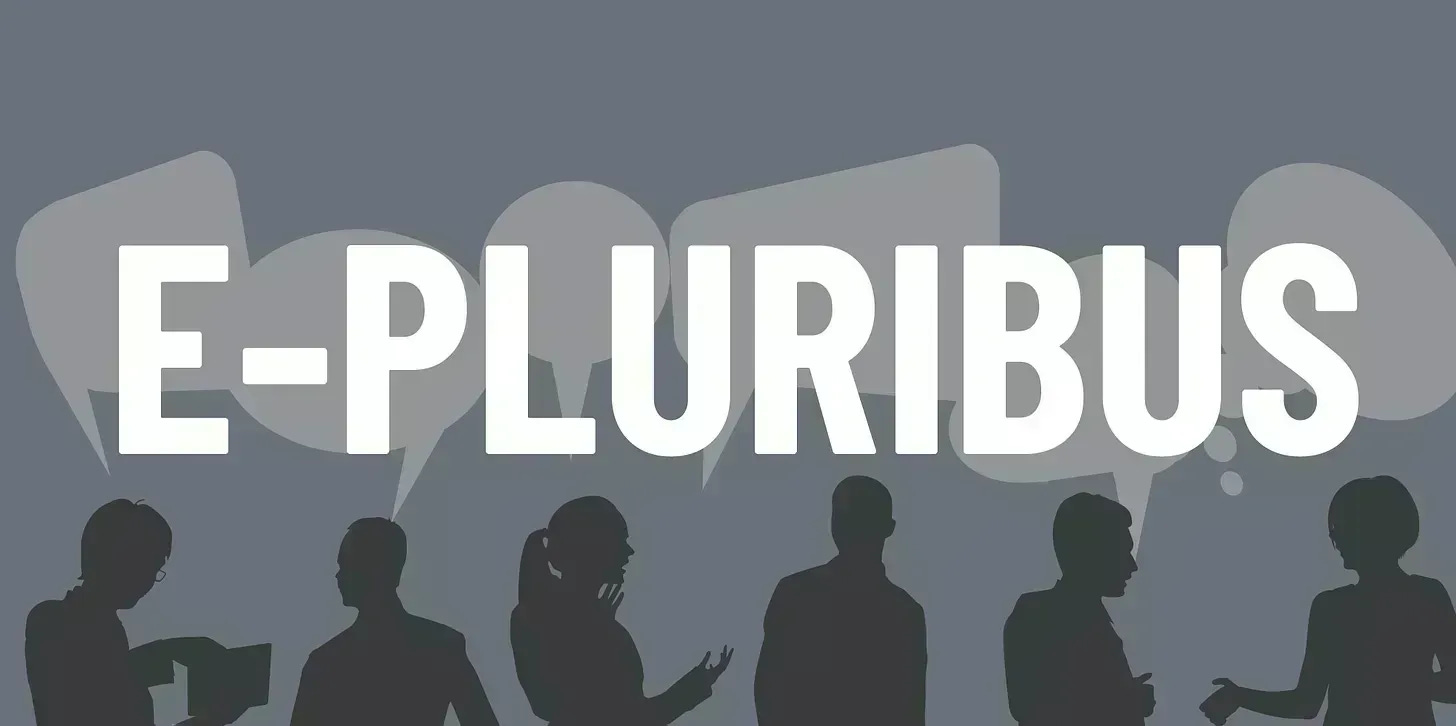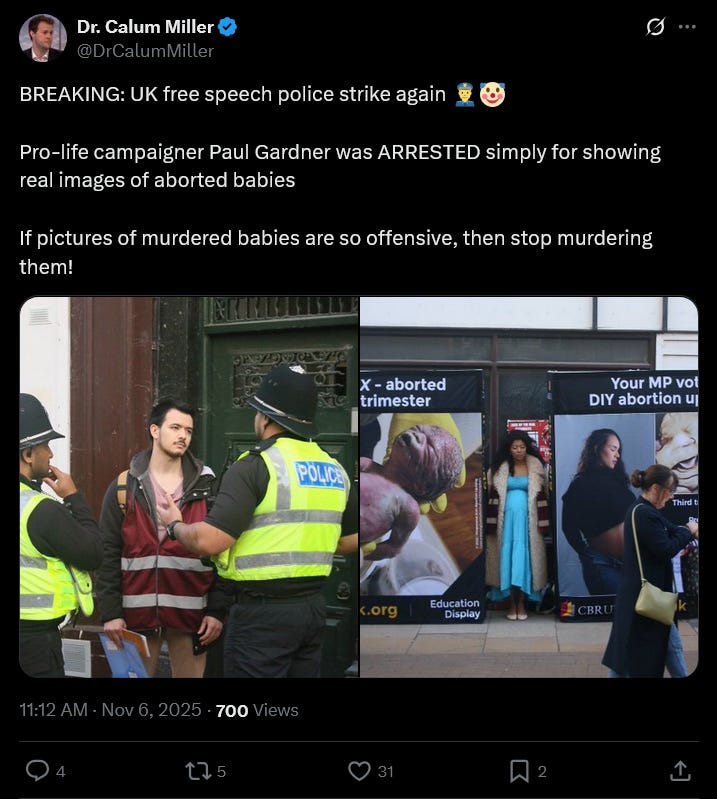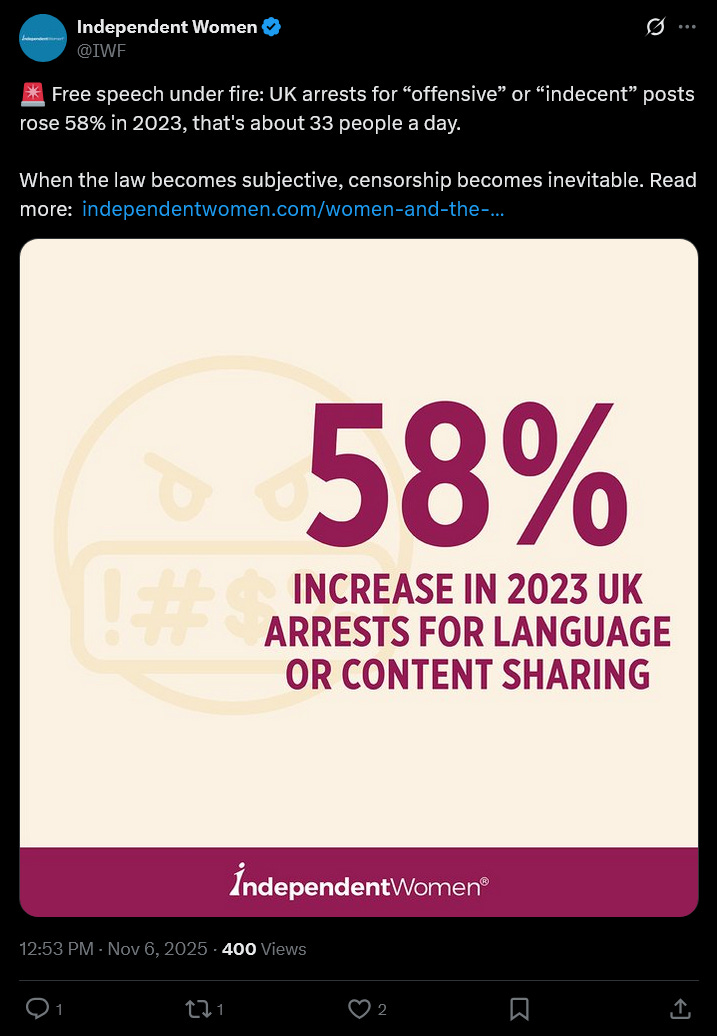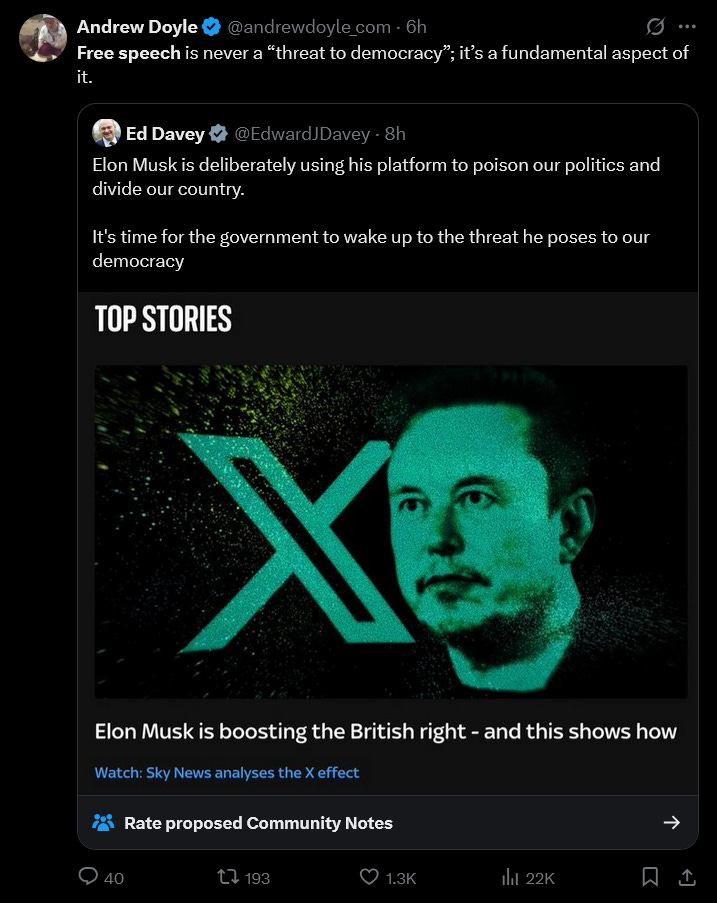E-Pluribus | November 6, 2025
Professor punished for criticizing Israel. Drag shows are free speech. Student newspaper editor fired for defending 1A?
A round-up of the latest and best insight on the rise of illiberalism in the public discourse:
FIRE: Stop University of Kentucky’s free speech crackdown
The University of Kentucky suspended law professor Ramsi Woodcock for criticizing Israel’s conduct in Gaza. Many will be tempted to let their view of the war dictate their reaction to Woodcock’s treatment. The Foundation for Individual Rights and Expression (FIRE) reminds us why that’s a mistake:
Whatever one thinks of his arguments, those views are constitutionally protected political speech on a matter of public concern. And political speech is where the First Amendment’s protection is “at its zenith” — shielding his views as much as those who disagree with him.
But UK didn’t care about Woodcock’s First Amendment rights.
Instead, they publicly shamed his views as “repugnant” in a campus-wide email and banned him from campus.
This isn’t about classroom conduct. This is about a public university punishing a faculty member for voicing certain political views — off campus, to boot.
It’s a warning shot: If you say the wrong thing, UK will make an example out of you.
Woodcock has taught at UK for seven years, earning tenure in 2022. He graduated from Harvard Law and was primarily known for authoring a groundbreaking 2018 Yale Law Journal article discussing advertising in the digital age. But now students are deprived of his teaching — not because of misconduct, but because of his politics.
That should terrify everyone who cares about academic freedom.
Elizabeth Nolan Brown: Oklahoma’s Obscenity Bait and Switch Could Ban Pride Parades and Public Drag Shows
Oklahoma lawmakers are trying to restrict drag shows and similar public performances by enacting additional obscenity rules. The problem? “Obscenity” has a discrete legal definition, and state officials are stretching it to cover expression they find personally objectionable. Elizabeth Nolan Brown makes that case for Reason:
[S]ome backers of H.B. 1217 were upfront about the fact that they wanted to target drag shows. But your average drag show does not rise to the level of obscenity. It’s certainly not obscene just because people are are in drag—something Oklahoma Attorney General Gentner Drummond recently pointed out.
That means that Oklahoma can’t go around prosecuting people just for putting on—or allowing people to put on—drag shows.
That this bill would fail to put an end to drag shows in Oklahoma should have been obvious. In fact, it should have been obvious that this bill would accomplish very little at all, legally speaking, since much of what it did was clarify a ban on already banned material.
But maybe state lawmakers in Oklahoma just don’t understand the First Amendment. Or maybe they were hoping that a chilling effect would prevail—that threatening to hold municipalities criminally accountable for allowing “obscene” performances would entice them to prohibit not just actually-obscene performances but anything sexually charged, or featuring drag performers, or otherwise legally risky. If that happened, they might ensure that a much wider category of speech than actual obscenity would be curtailed.
…
Whether a performance or art work is obscene is something to decided by juries after the material exists. Government authorities can’t decide in advance of a performance or event that it might contain obscenity and therefore can’t happen—that’s generally presumed unconstitutional.
As Stabile put it on Bluesky: “You can’t restrain speech based on what you think the speaker *might* say or do. That’s prior restraint. The government can prosecute for ‘obscenity’ after performance, but not before it. Because you didn’t actually do it.”
While authorities have a little more than average leeway here when it comes to obscenity, “the thrust of the [Supreme] Court’s opinions in this area with regard to all forms of communication has been to establish strict standards of procedural protections to ensure that the censoring agency bears the burden of proof on obscenity, that only a judicial order can restrain exhibition, and that a prompt final judicial decision is assured,” notes Justia.
Leo Glasgow: Fired newspaper director sues Indiana U. over alleged censorship
Indiana University allegedly fired the editor of its student newspaper because he refused to censor critical coverage of the school. The affair has sparked a First Amendment lawsuit against IU. The College Fix reports:
Former Indiana University student media director Jim Rodenbush has filed a lawsuit against the school, alleging he was fired for refusing to censor content in the Indiana Daily Student newspaper.
Rodenbush alleges that his termination violates his First Amendment rights. However, IU says it has not interfered with free expression.
John Little, an attorney representing Jim Rodenbush, told The College Fix that the university is “engaging in content based speech restrictions, which can’t happen.”
“You’ll notice Indiana University realizes they’ve done that and they’ve already restored the paper,” he said.
This week, IU reversed its decision to end print publication of its student newspaper, The Fix reported. But Rodenbush’s termination still stands.
Little said his team has filed a First Amendment claim on Rodenbush’s behalf, adding that there is clear evidence IU objected to the content of the Oct. 13 issue, leading to his termination.
The attorney also told The Fix that “anybody who is paying attention to freedom of the press should be very concerned. We have to win. The government cannot have any kind of freedom of speech restrictions and call itself a republic.”
Around X
The UK continues its clampdown on free speech.
Independent Women’s Forum confirms the UK’s censorship problem is widespread and growing:
On a related note, Andrew Doyle highlights the absurdity of setting free speech against democracy. The two obviously go hand in hand:









